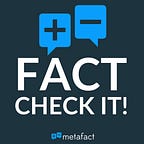Hello everyone,
Each month Metafact members vote on a topic for us to investigate with the world’s top experts (remember to vote here). We call these Metafact Reviews - and they are science-powered guides giving you the state of knowledge today on key topics.
One of our recent reviews was on Probiotics - which has become a huge $48billion industry with nearly 4million Americans using probiotics regularly. You can see its impact every visit we make to the grocery store with hundreds of probiotic fortified products from milk, yogurts to kombucha drinks. All these probiotic products and supplements try and lure you into believing the science behind them is solid. Are they?
We wanted to examine these claims, so we asked over 30 top gastroenterologists, microbiome and medical experts to share the facts. Today I wanted to share some of the key findings for everyone in both written form and in audio format (above).
As someone who has purchased probiotic yogurt in the past, the key things I learned from our review:
Probiotics are safe but the evidence is weak on the benefits for healthy people, expectant mothers, and infants
You don’t need probiotics to have a healthy gut, just eat lots of fiber (fruits, vegetable, whole-grains) and your microbiome will flourish
So if you don’t have a digestive condition, don’t waste your money on kombucha or Probiotic Yoghurt - I sure won’t anymore. Instead use the savings to buy more fruits, vegetables, and fibrous foods - or maybe you’d like to use some of the savings to become a Metafact member so we can examine more topics important to you :)
Enjoy our probiotics review and always remember…
May the facts be with you!
Ben McNeil
Founder, Metafact
The ‘Magic’ Yoghurt
For hundreds of years, people have been consuming foods that are supposed to promote good digestive health, but the modern science around probiotics is typically traced back to a guy named Élie Metchnikoff. An immunologist and Nobel laureate, Metchnikoff theorized in the early 1900s that a person’s health could be improved by introducing good bacteria to the gut’s microbiome via yogurt. His ideas languished for a time, but they began to gain steam in the 1990s, when the modern probiotics industry was born.
As a 2013 article in the journal Frontiers in Public Health recalled, “Metchnikoff’s concepts laid the foundation” for the science, but that same article notes that Metchnikoff’s work has spawned plenty of fringe medical theories about the role the gut plays in any number of ailments, both real and imagined.
CONSENSUS
Do probiotics make it past the stomach?
In order for probiotics to be most beneficial, they must be able to make it to the gastrointestinal tract. There are two related questions we needed to verify. The first: Do probiotics actually make it past the stomach? Some experts have cast doubt as to whether the bacteria in probiotics supplements can survive the acids found in the stomach.
The second question? If they do make it to the intestines, do probiotics organisms spend any meaningful amount of time there?
Let’s start with the first question. All of our experts agreed that probiotics do make it past the stomach. But the time of day when you take the probiotic can help in determining how much of the bacteria navigates all the way through your digestive tract. “Although the pH of the gut is generally considered to be highly acidic (i.e., pH<3.5-5), studies have shown that following a meal, the pH of the stomach can rise to a range of 4.0 – 6.0,” noted Case Western Reserve University professor Mahmoud Ghannoum. “Approximately two hours after eating, the pH then returns to pre-ingestion levels.” What does that mean? “This indicates that taking your probiotic after a meal makes sense since the acidity will decrease.”
So probiotics microorganisms do make it to the gut, but do they stay there for very long? Highly unlikely. “Actually, it is quite difficult to get new strains to establish in a healthy bacterial gut community,” wrote Technical University of Denmark professor Tine Licht. “Which is a good thing because it means that the healthy community is robust and difficult to alter.” Indeed!
How long can you expect the probiotics to remain in your gut? Dr. Ashok Kumar Pattanaik’s research found “that the probiotic-effects disappears within a fortnight of its withdrawal from the diet.” The most common bacteria found in probiotics are lactobacilli and bifidobacteria, and Philippe Langella, an expert from Institut National de la Recherche Agronomique, estimated that they “could persist in the gut between 2-3 days for lactobacilli and 5-7 days for bifidobacteria.”
That’s not to say there aren’t specific cases where probiotics could colonize the gut for a longer period. Toni Gabaldon, an expert from the Institute for Research in Biomedicine in Barcelona, explained that, in cases where there's "already low diversity or an unbalanced ecosystem," the probiotic has a better chance to "colonize the niche." For example, a patient could experience lower bacteria diversity after taking antibiotics. Which leads us to our next set of questions...
CONSENSUS
Should healthy people take probiotics daily?
What if you have a pretty normal digestive system with digestive issues. Should you take probiotics? Is it safe to take them?
Most of our experts agreed that, at worst, probiotics are mostly harmless and will pass through you without any negative effects. Hannah Wardill, the expert from University of Adelaide, pointed out two studies regarding this subject. The first, from the European Journal of Clinical Nutrition “reported higher levels of ‘good bacteria’ in the participants' guts, but this was not associated with any tangible health benefit.” In fact, as soon as the participants stopped taking their probiotics, the "beneficial" effects on the microbiome vanished.
The second study, published in Cell, found that healthy people who are given probiotics actually see their gut bacteria suffer. “Again not surprising,” wrote Wardill. “Often probiotics are recommended to people after they have antibiotics to help restore their gut flora, but this study actually showed that probiotics slowed down or delayed restoration of their gut bacteria!” The researchers found that it’s actually more beneficial to administer a fecal transplant of healthy stool (ideally taken from the patient prior to the antibiotics regiment).
Mansel William Griffiths, an expert from the University of Guelph, noted that several probiotics studies with pigs showed positive health effects, but other experts wondered why you’d want to introduce new microorganisms into a healthy ecosystem. “As long as the host is already healthy and the gut microbiota is already in a homeostatic state, there's no need as such to introduce a foreign bacterium (even if it has been found to be beneficial for some people) into your already healthy gut,” wrote Ravinder Nagpal, a research fellow at Wake Forest School of Medicine.
Several of our experts pointed out that, whatever your position is on probiotics, they can’t serve as a stand-in for a healthy lifestyle. “Taking probiotics without addressing lifestyles (e.g. stress, exercise, sleep) issues is not enough,” wrote Case Western Reserve University’s Mahmoud Ghannoum. “Thus, I recommend that you address these issues and eat a nutritionally balanced diet that is low glycemic, rich in fiber, and low in sugar.”
QUICK ANSWERS
Are probiotics harmless? Yes for the vast majority.
Are probiotics necessary for a healthy microbiome? No.
Is a high-fibre diet good for the microbiome? Absolutely.
Do probiotics affect mental health? Hard to say, but unlikely.
Are probiotics effective in the treatment of pouchitis? It seems likely.
Do probiotics help mothers and their babies?
Unlikely writes Candice Quinn, an expert from the University of British Columbia in Gastroenterology
While probiotics are a multi billion-dollar industry, there is little evidence to show that supplementing infants provides any health benefits. We conducted an observational study where 35 of 86 participating mothers self-administered probiotics during breastfeeding, as well as directly to their infants. The primary objective was to determine if probiotic exposure influenced the infants’ fecal microbiome with the secondary objective to assess associated changes to the mothers’ breast milk immunity and infant health.
Analysis of infant fecal microbiome throughout the first 6 months of life revealed that probiotics were associated with higher abundances of Bifidobacterium at week 1 only. Short-chain fatty acid production and predicted metagenomic functions of the microbial communities were not altered.
While probiotics did not alter breast milk immune markers, fecal sIgA responses were higher among probiotic supplemented infants. Surprisingly, this was not associated with better health outcomes, as the probiotic cohort had higher incidences of mucosal-associated illnesses as toddlers. This retrospective clinical comparison suggests that probiotic exposure during infancy has limited effects on gut microbial composition yet is associated with increased infection later in life.
These correlative findings caution against probiotic supplementation during infancy until rigorous controlled follow-up studies determining their safety and efficacy have occurred.
REVIEW TAKEAWAYS
Probiotics companies are routinely fined by consumer protection agencies, so be wary of any marketing claims they make.
Regardless of whether they help you, taking probiotics probably won't harm you.
Different probiotics companies use different strains of bacteria, so it's difficult for science to deliver a verdict on whether they carry many benefits.
There's some evidence to suggest probiotics help in the treatment of certain ailments, but plenty of experts express doubt on this subject.
Probiotics will never replace a good diet that consists of plenty of fruits and vegetables.
Members can read much more from the entire Metafact review here.
If you enjoyed this edition of Verified, consider clicking the little heart (to give it a “like”), sharing it with a friend where they can sign-up to this digest here:
Remember if you want to ask a question for the next episode (send it to ben@metafact.io).







